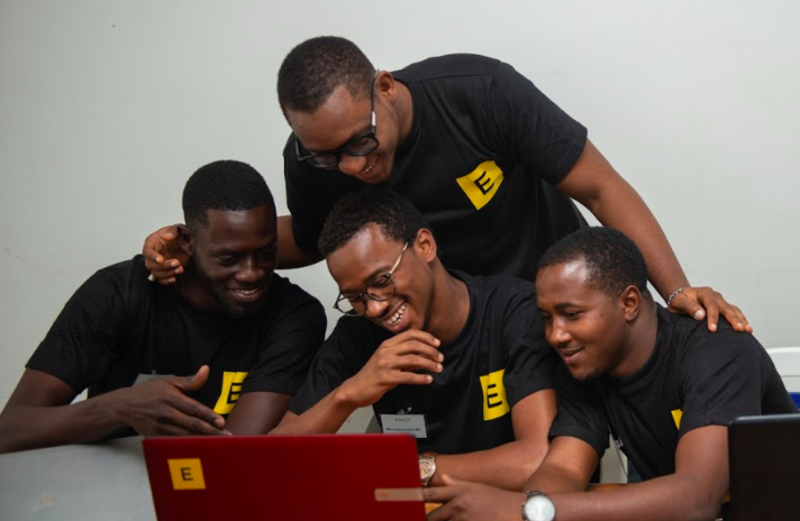Developing soft skills in ICT Education

Information Technology and Communications (ICT) is a new and growing sector in Senegal, and only a few jobs are available in the market. However, it is becoming urgent to train students with the skills needed to strengthen and grow the industry. This need is amplified since the training provided at local traditional educational institutions is not always aligned to current and future technology. For this reason, in 2016, EDACY developed a training programme, answering the need to provide African youth with ICT-skills. The majority of EDACY students hold a bachelor's degree and are between the ages 22 and 30, and 25% of the student body is female. EDACY was financed by the founder and several investors. EDACY further generates funds from providing training to employees of companies.
EDACY offers a 9-Month Programme to skill up young Africans for them to become employable in a digitalized world.
- The programme consists of 2 phases: A 3-month in-house training, followed by a 6-month internship in a partner company. During the latter students still benefit from online courses as well as workshops at EDACY.
- The inhouse training focuses on 3 pillars: soft skills (leadership, critical thinking, collaboration), technical skills (data science, web development, mobile development) and design thinking.
- The training emphasizes skills to solve problems that the WorkLearners (students) will encounter once they enter the job market. These skills are developed through case studies provided by the partners companies, throughout the programme. Students work on the case-studies in groups and present their solutions. The process grows the students’ knowledge base of companies in various sectors, in addition to improving their project management and collaboration skills.
- Each partner company designates a WorkLearner Master who will work with Edacy’s Student and Enterprise Success Coordinator to track the talent’s learning process. The WorkLearning Masters are trained by EDACY and are provided with tools and techniques necessary to successfully train the talents during the 6-month apprenticeship.
- Trainees are paid a monthly salary for the duration of the internship.
- Since the inception of the programme in 2016, EDACY has trained 90 students with a job placement rate of 98%.
- EDACY runs 4 cohorts per year, selecting 15-20 students out of 350 applications received per cohort
Currently, EDACY has established partnerships with more than 30 companies (UNICEF, BICIS, Gainde2000, Expresso) , which have agreed to hire at least 3 work-learners per year. These partnerships are valuable for the companies as they are given the opportunity to hire interns who have acquired soft skills that students from other training programmes generally do not have.
EDACY has learnt that there is a lot of advocacy which needs to be done with the private sector. Most companies on the market tend to believe that hiring interns is for the sole purpose of giving them tasks, and not contributing to their training. EDACY recognizes their responsibility and potential for impact with regards to supporting the change of mentality that needs to happen within the private sector in Senegal as well as in several countries across Africa. Moreover, EDACY has found that when companies are asked to contribute, they are interested, but find themselves to be without the resources or knowledge on how to proceed. To resolve this, tutors inside the companies are offered online training by EDACY, followed by a monthly communication between them and the training institution. This allows both parties to track the students’ progress and refine which further training they would need.
MOVING FORWARD
EDACY is growing quickly and aims at selecting 50 Work-Learners for the upcoming cohort in June 2019. It is are currently present in Senegal and Oman and has hired teams in Nigeria and Ivory Coast planning to open units in these countries at the end of the year.
The programme offered by EDACY is suitable for replication, this work is already being started in Nigeria and Ivory Coast. However, for the programme to work, it is necessary to establish connections with the private sector as cooperating with companies plays a huge role in the training program offered by EDACY. The skills, both soft and technical, that the youth acquire through the programme are much needed across the continent, the same goes for training students’ mentors within each partner companies. This will help improve the general mindset of the private sector and reconsider the importance of having apprentices or interns. EDACY is constantly improving the format of its training and believes in the continuous development of the digital part of the training, to automate some activities. Developing an internal learning management system is going to be their first step towards digitalizing parts of the training.
